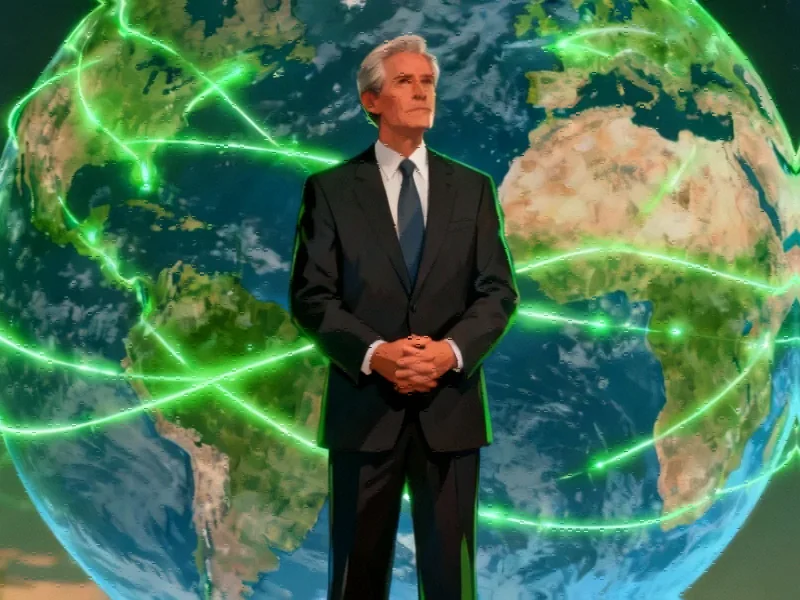Political Calculus Behind Climate Commitment
In a decisive move that signals Britain’s renewed engagement with global environmental leadership, Prime Minister Sir Keir Starmer has confirmed his attendance at November’s COP30 climate summit in Brazil. This announcement follows weeks of intense internal debate within Downing Street, where advisors clashed over whether the Prime Minister should prioritize domestic economic concerns or demonstrate international climate leadership. The resolution to proceed with the Brazil trip represents a significant victory for those advocating a strong UK presence on the global environmental stage.
Starmer’s decision carries substantial political weight, creating clear daylight between his Labour government and the Conservative opposition’s increasingly skeptical stance on climate action. While Tory leader Kemi Badenoch has pledged to repeal the Climate Change Act and abandon the 2050 net zero target established under Theresa May, Starmer is positioning climate action as “the economic opportunity of the 21st century” with potential to revitalize Britain’s industrial regions.
Navigating Domestic and International Pressures
According to insiders familiar with the deliberations, “nearly everyone” in Downing Street had initially advised against the Brazil trip. The primary concern centered on the timing—just before a crucial Budget announcement—with many arguing that Starmer should focus on demonstrating progress to domestic audiences. The Prime Minister already faces a packed international schedule, including upcoming visits to India and the G20 summit in South Africa, making the addition of another overseas commitment particularly contentious.
However, political calculations appear to have played a significant role in the final decision. Labour strategists recognize that climate change remains a motivating issue for their core supporters, even as that support shows signs of fraying at the edges. The party risks losing more votes to the Greens and Liberal Democrats than to Reform UK or the Conservatives on environmental issues, creating imperative for strong climate positioning. This strategic consideration comes amid broader market trends where environmental policy increasingly influences economic relationships.
Global Context and Leadership Vacuum
Starmer’s commitment to COP30 assumes greater significance against the backdrop of global political developments. With Donald Trump having withdrawn the United States from the Paris Climate Agreement for the second time, a leadership vacuum has emerged in international climate diplomacy. Michael Jacobs, former Downing Street climate adviser to Gordon Brown, described Starmer’s decision as “excellent news” at this critical juncture, noting that the UK has the potential to play a pivotal role given its strong domestic and international record on climate action.
The Prime Minister would have faced accusations of hypocrisy had he skipped the Belém summit, having previously criticized his Conservative predecessor for missing COP27 in Egypt. That earlier absence was branded by Starmer as “a failure of leadership,” creating expectations that he would maintain consistent attendance at major climate gatherings. This commitment to international cooperation mirrors related innovations in global connectivity that are transforming how nations collaborate on shared challenges.
Implementation and Broader Implications
While Starmer will attend the leaders’ summit on November 6-7, Energy Secretary Ed Miliband will represent the UK throughout the full COP30 conference from November 10-21. This dual representation underscores the government’s commitment to both high-level diplomacy and technical negotiations. Labour MP Luke Murphy, who chairs the all-party parliamentary group on climate change, praised the approach as demonstrating that Starmer is “leading from the front and putting the UK back where it belongs, at the forefront of climate leadership.”
The decision also reflects growing recognition that environmental policy cannot be separated from economic and technological considerations. As the government emphasizes the economic opportunities presented by the transition to net zero, this alignment between environmental and economic objectives echoes patterns seen in other sectors experiencing rapid transformation, including concerns about cloud centralization that have emerged alongside digital advancement.
This comprehensive approach to climate diplomacy represents a significant departure from the previous government’s stance and signals Britain’s intention to reclaim a position of influence in global environmental governance. As confirmed by official announcements, the Prime Minister’s participation underscores the strategic importance the UK places on both climate action and international cooperation in addressing one of the defining challenges of our era.
This article aggregates information from publicly available sources. All trademarks and copyrights belong to their respective owners.
Note: Featured image is for illustrative purposes only and does not represent any specific product, service, or entity mentioned in this article.
